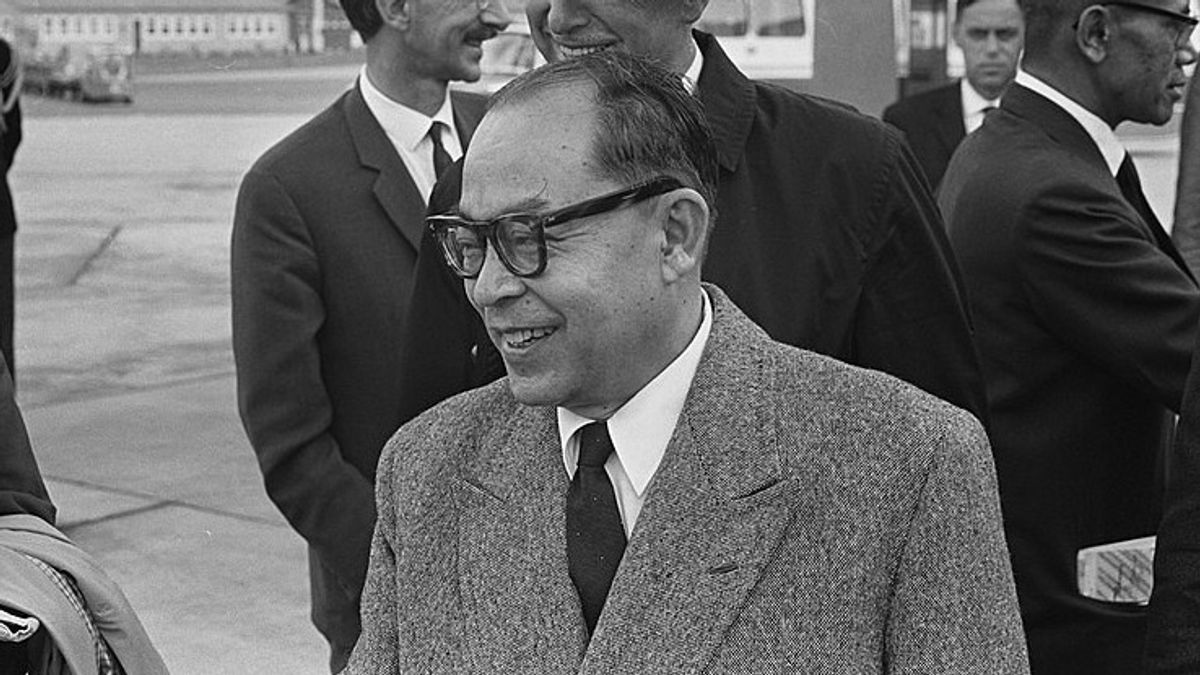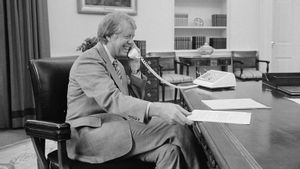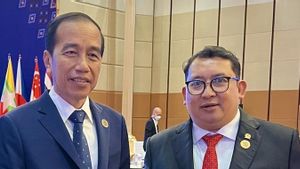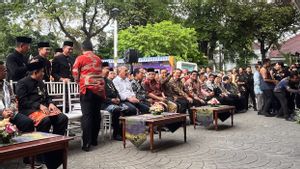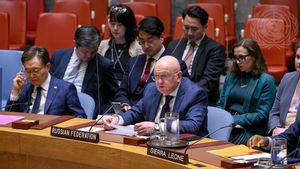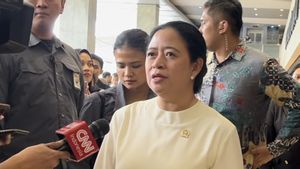JAKARTA - The adventures of Mohammad Hatta studying in the Netherlands are full of twists and turns. His status from an established family was not enough to smooth his steps as a scholar. Hunting for scholarships is his practice. But the facility had made him complacent. Hatta actually do a lot of activities outside of college. Because of this, he failed the exam. This failure made him no longer dare to ask for a scholarship. Instead, he chose a student loan.
Migrating to Batavia became a decisive moment in Bung Hatta's life. In Betawi land, Bung Hatta continued his education at the Prins Hendrik School (PHS) trade science high school. Bung Hatta's education costs were fully borne by his uncle who is also a successful businessman, Mak Etek Ayub.
From living expenses to education. This convenience made Bung Hatta continue to pursue education with freedom. Bung Hatta was also able to play an active role in the youth movement. His insight increased, as did his empathy for the suffering of the people.
The new understandings gained in Batavia made Bung Hatta determined to continue his studies in the Netherlands. Even though not a few people advised him to quickly work when he graduated.
Bung Hatta then completed his education at PHS without any problems in 1921. However, Bung Hatta was confused about the cost. While Bung Hatta himself was reluctant to bother his parents. Mak Etek Ayub appears as a savior. He promised to help with all forms of financing while studying in the Netherlands.
"When he studied at PHS for two years in Betawi, Hatta was assisted by a merchant in the city called Mak Etek Ayub by Hatta. To Hatta he advised, don't trouble your parents; because of that the remittances from home were stopped. If it's still sent, just enter it in the Postal Savings Bank. He was given 75 guilders a month by Mak Etek Ayub, which Hatta considered excessive," said P. Swantoro in the book From Book to Book: Connect Connecting to One (2017).

"This is because maybe Hatta can have quite a lot of savings. Especially if he still gets deliveries from home. But regarding this, Hatta did not tell in his Memoir. What is clear, as already stated, is that from his own savings, Hatta was able to finance his voyage to Rotterdam and pay his living expenses for one year there."
Troubles came to Hatta just before he left for the Netherlands. Mak Etek Ayub, who had been willing to guarantee his life while in the Netherlands, was hit by a disaster. His business is bankrupt. The incident had disturbed Hatta's concentration.
Instead of giving up, Hatta chose to fight. Scholarships are considered the most reasonable option. Even though it was too late. He tried to get scholarships here and there to be able to sample knowledge from the high school of economics in Rotterdam, Nederlandsche Handels-Hoogeschool.
Bung Hatta's struggle was rewarded. He received a scholarship from Van Deventer Stichting, the Van Deventer Foundation. The scholarship was initially awarded for two years of study, and later changed to three years.
The problem is that Bung Hatta is too late to apply for a scholarship. As a reward, Bung Hatta could not help but pay for the shipping costs from Teluk Bayur to Rotterdam. He also has to prepare for the cost of living in Rotterdam for a year. Or until the scholarship drops.
In order to cover the costs, Bung Hatta's family provided financial assistance. Mak Etek Ayub who had gone bankrupt also helped Hatta. Everything was done with one mission: so that Bung Hatta could study in the Netherlands. The cost of his departure which reached 1,100 guilders was collected. The rest is for living expenses. Bung Hatta believes that the remaining savings are approximately 2,500 guilders. That would be enough, he mumbled.
"Fortunately, Hatta was a thrifty man, armed with his savings during school, coupled with the help of his uncle Ayub Rais and relatives and traders in Padang who joined the Business Union also helped him, so on August 3, 1921 Hatta sailed from Teluk Bayur, to the country The Netherlands to continue their studies by boarding the Tambora ship belonging to Rotterdam Lloyd," wrote Anwar Abbas in the book Bung Hatta and Islamic Economics (2010).
From scholarships to student loansBung Hatta's decision to study in the Netherlands did not go smoothly. Bung Hatta didn't just go to college to be a geeky student. He also played a role in various organizations that fought for Indonesian independence. This means that Bung Hatta must carry out two roles at once. As a student and member of the Indische Vereeniging organization or later changed to Indonesische Vereeniging (Indonesian Association: PI)
Bung Hatta's conscience was much moved when he joined PI. The organization which was originally only a social breath has now transformed into a political organization. He continued the ideals of PI as a political organization that had been initiated by his predecessors, such as Ernest Douwes Dekker, Tjipto Mangoenkoesoemo and Soewardi Sorjaningrat (later known as Ki Hajar Dewantara). Bung Hatta made up his mind to be serious at PI. The risk is that Bung Hatta's studies will be disrupted.

“After being led by figures who later became well-known in the national movement, such as Ahmad Subarji, Sutomo, Hermen Kartowisastro, Iwa Koesoema Soemantri, Nazir Datuk Pamuntjak, and Sukiman Wirjosandjojo (the names reflect changes in organizational attitudes), in 1926 the leadership fell to Hatta's shoulders - in fact until 1930, the thing that caused him to be late in completing his studies," explained Deliar Noer in the book Mohammad Hatta: Heart of the Conscience of the Nation (2012).
“But the more time he spent in his studies, the more mature he became, moreover he also deliberately took another lesson that had just been introduced at his school, namely about state administration. PI under the leadership of Hatta showed a change. This association pays more attention to the development of the national movement in Indonesia by providing reviews, suggestions and, if necessary, criticism of the movement.”
Bung Hatta's delay in completing his studies was because Bung Hatta did not pass the Handel Economics (DH) Diploma exam. The DH exam was carried out in two stages. Bung Hatta can pass easily in the first stage of the exam. But not for the second stage of the exam. He was asked to wait for three months to re-take the test again.
The failure made Bung Hatta feel ashamed. Moreover, the DH exam is a determinant of Bung Hatta being able to continue his studies to the next level, to a doctoral degree or a complete bachelor's degree with a doctorandus (Drs.). Even though he passed the re-examination, Bung Hatta's shame in asking for another scholarship from the Van Deventer Foundation was getting worse. To pay for his doctoral education, Bung Hatta had to rack his brains.
The full scholarship path is no longer a priority for him. He chose to look for a student loan scholarship. A.k.a. a loan scheme related to tuition fees to go to college. including living expenses. The loan was only returned or paid after Bung Hatta was able to graduate from college and get a job. The deduction is adjusted to the amount of salary received later.
Batavia theosophical figure, Ir. Van Leeuwen became the savior. He moved to pave the way for Hatta to get a student loan. Van Leeuwen asked his friend, Ir. MJ Romer to find an organization that focuses on providing loans to students. Mission accomplished.
By Van Leeuwen, Hatta was asked to specify the costs required for a three-year doctoral education. The exact number is obtained. Bung Hatta was then asked by Van Leeuwen to pay in installments when he had obtained a position in the Dutch East Indies. However, due to his busy schedule, Hatta was only able to pay for it when he served as Vice President of the Republic of Indonesia. Not in installments, but paying the student loan in full.
“After a week I came back and Ir. Van Leeuwen informed me that I received the scholarship for three years. When you later get a position in the Dutch East Indies, you pay the scholarship in installments," said Bung Hatta in the book Mohammad Hatta: Memoir (1979).
*Read other information about HISTORY or read other interesting articles from Detha Arya Tifada.
Other MEMORIESThe English, Chinese, Japanese, Arabic, and French versions are automatically generated by the AI. So there may still be inaccuracies in translating, please always see Indonesian as our main language. (system supported by DigitalSiber.id)
